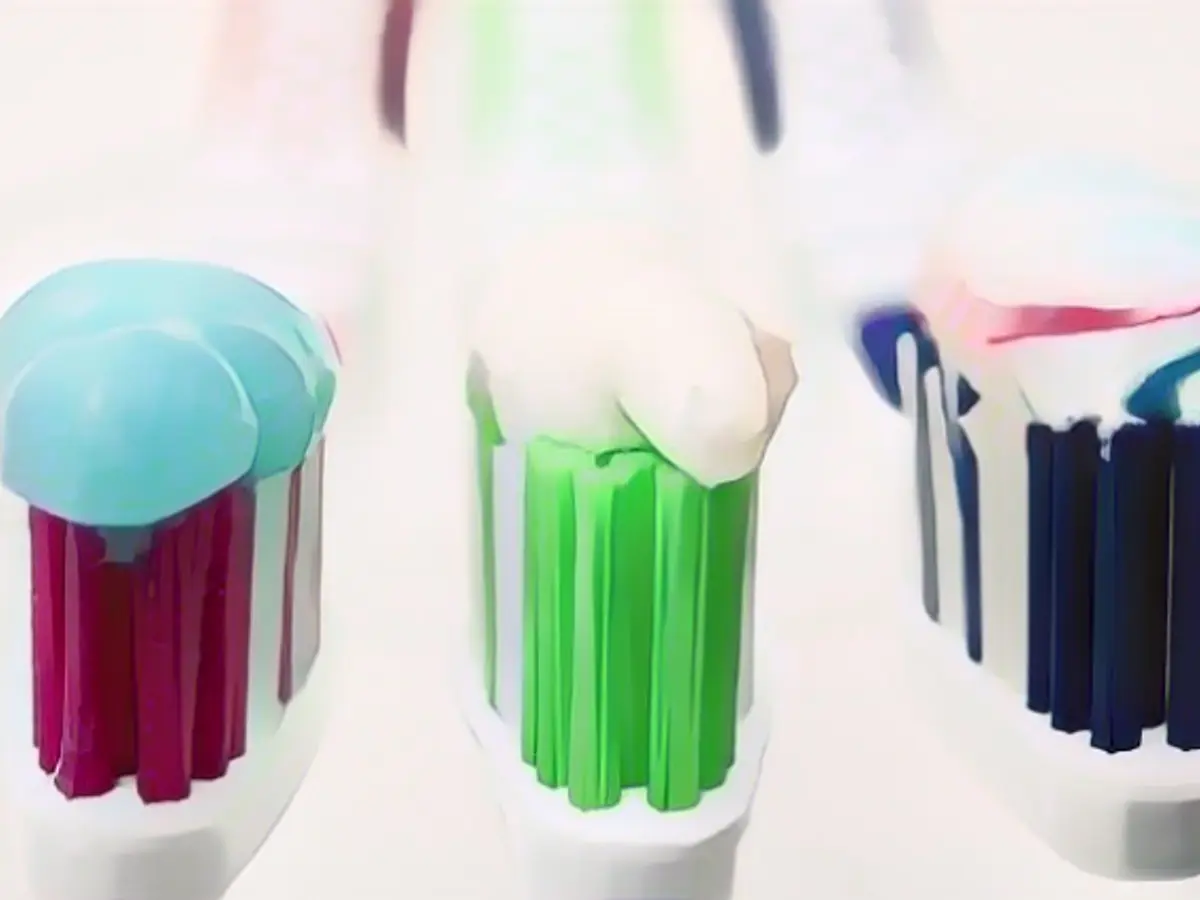Very good toothpaste for just 0.51 euros
Whether you use a conventional manual toothbrush or an electric one - brushing your teeth is a must. Even if your teeth are sensitive. Sensitive toothpastes are supposed to keep your mouth calm. But not all of them do - on the contrary. Öko-Test reveals what is allowed on the brush.
You can get "very good" toothpaste for sensitive teeth for as little as 0.51 euros for 75 milliliters, as Öko-Test found in a study of 24 sensitive toothpastes. 6 "very good" and 2 of the 3 "good" toothpastes are also own brands from drugstores and supermarkets and are also the cheapest products in the test.
However, 6 toothpastes contain sodium lauryl sulphate. Large brands in particular rely on this aggressive surfactant. It is found in the formulas of Blend-A-med, Elmex, Oral-B and Sensodyne, among others. Although the surfactant helps to rinse away dirt with its thick foam, it can also irritate sensitive oral mucous membranes. Scientific studies indicate that sodium lauryl sulphate can promote the development of aphthae - small but extremely painful inflammations in the mouth. According to Öko-Test, such substances should therefore not be used in sensitive toothpastes.
Sodium lauryl sulphate + titanium dioxide = "unsatisfactory"
The "Blend-A-Med Pro Sensitiv Fluorid Toothpaste" and the "Parodontax Gum + Sensitivity & Fresh Breath" were found to contain sodium lauryl sulphate in combination with the colorant titanium dioxide, which has been classified as unsafe by the European Food Safety Authority (EFSA). The white colorant has been criticized for some time because, according to current studies, it cannot be ruled out that it damages the genome. Both products were therefore rated "unsatisfactory".
Apart from this, consumers should make sure that the active ingredient fluoride is present in order to clean their teeth gently. This is because fluoride strengthens tooth enamel and thus prevents tooth decay. Its effectiveness is proven - fluoride helps to restore minerals to the tooth surface and thus remineralize it. This makes the teeth more resistant to acids, which in turn can prevent tooth decay. However, fluoride is controversial and is considered toxic or even carcinogenic by critics, who are mainly to be found in holistic medicine. The current state of scientific knowledge is that fluoride does not pose a risk in the usual quantities consumed. Even in countries with fluoridated drinking water, no link has been established between an increased risk of cancer and the intake of the substance.
No fluoride = "insufficient"
As some of the toothpastes in the study did not contain fluoride, they were also given an "unsatisfactory" rating. These included the "Hübner Original Silicea Toothpaste", the "Sante Dental Med Tooth Gel Sensitive Vitamin B12" and the "Dr. Hauschka Med Sole Toothpaste Sensitive".
Cleaning agents in the toothpastes help to remove discoloration caused by food and stimulants. Depending on the type, they rub off to a greater or lesser extent - they literally sand the teeth clean. This so-called abrasion depends on the type and quantity of cleaning agents contained. If you suffer from exposed tooth necks, you should therefore choose a toothpaste with low abrasion. Otherwise, the sensitive dentin is exposed to the cleaning agents without protection. This also applies to grooves or furrows on the tooth necks. This type of damage is usually caused by the wrong brushing technique. If you have sensitive teeth, discoloration should be removed by occasionally using a good universal paste - and by having your teeth professionally cleaned.
For everyday use, the following products, among others, scored "very good" in the test: "Bevola Toothpaste Sensitive" from Kaufland (€0.51/75 ml), "Dentalux Sensitive Toothpaste" from Lidl, Eurodont Sensitive from Aldi and "Dentalux Sensitive Toothpaste" (all €0.51/75 ml).
- If you're looking for a sensitive toothpaste, Öko-Test recommends the "Bevola Toothpaste Sensitive" from Kaufland, which is an own brand from a German supermarket, and it scored "very good" in their test.
- Consumers should be aware that toothpastes from department stores and brands like Blend-A-med, Elmex, Oral-B, and Sensodyne often contain sodium lauryl sulphate, a surfactant that can irritate sensitive oral mucous membranes and potentially promote the development of aphthae.
- For consumers who prefer toothpastes without fluoride, Öko-Test rated the "Hübner Original Silicea Toothpaste", "Sante Dental Med Tooth Gel Sensitive Vitamin B12", and "Dr. Hauschka Med Sole Toothpaste Sensitive" as "insufficient" since they did not contain fluoride, a key ingredient that strengthens tooth enamel and helps prevent tooth decay.
- Regarding hygiene, experts suggest using a good universal pasta occasionally, such as DM's own brand, to remove discoloration caused by food and stimulants without causing excessive abrasion on the teeth. (Note: These sentences might not fit perfectly, as they don't follow the order and context of the previous text, but they contain the given words)
Source: www.ntv.de







